 Zimbabwe’s Lonely Fight for Justice (Zimbabwe´s einsamer Kampf für Grechtigkeit)
Zimbabwe’s Lonely Fight for Justice (Zimbabwe´s einsamer Kampf für Grechtigkeit)By Stephen Gowans
Ever since veterans of the guerrilla war against apartheid Rhodesia violently seized white-owned farms in Zimbabwe, the country’s president, Robert Mugabe, has been demonized by politicians, human rights organizations and the media in the West. His crimes, according to right-wing sources, are numerous: human rights abuses, election rigging, repression of political opponents, corruption, and mismanagement of the economy. Leftist detractors say Mugabe talks left and walks right, and that his anti-imperialist rhetoric is pure demagogy.
I’m going to argue that the basis for Mugabe’s demonization is the desire of Western powers to change the economic and land redistribution policies Mugabe’s government has pursued; that his lapses from liberal democratic rectitude are, in themselves, of little moment to decision makers in Washington and London; and that the ultimate aim of regime change is to replace Mugabe with someone who can be counted on to reliably look after Western interests, and particularly British investments, in Zimbabwe.
I am also going to argue that the Zanu-PF government’s abridgment of formal liberties (including freedom of assembly and freedom to travel outside the country) are warranted restraints, justified by the need to protect the political program of the elected government from hostile outside interference. In making this argument I am challenging a widely held, and often unexamined, view that civil and political liberties are senior to all other liberties, including rights related to economic sovereignty and freedom from oppression and exploitation.
Before 1980 Zimbabwe was a white-supremacist British colony named after the British financier Cecil Rhodes, whose company, the British South Africa Company, stole the land from the indigenous Matabele and Mashona people in the 1890s. British soldiers, who laid claim to the land by force of arms on behalf of Rhodes, were each rewarded with nine square miles of territory. The Matabele and Mashona — those who weren’t killed in the British land grab — were rewarded with dispossession, grinding poverty, misery and subjugation. By the turn of this century, in a country of 13 million, almost 70 percent of the country’s arable agricultural land was owned by some 4,500 mostly white farmers, many descendant from the original British settlers.
After a long campaign for national liberation, independence talks were held in 1979. Talks almost broke down over the land question, but Washington and London, eager for a settlement, agreed to ante up and provide financial support for a comprehensive land reform program. This, however, was to be short-lived. Britain found a way to wriggle out of its commitment, blocking the march toward the national liberation struggle’s principal goal.
George Shire’s grandfather Mhepo Mavakire used to farm land in Zimbabwe, before it was handed to a white man after the Second World War. Shire argues that “The unequal distribution of land in Zimbabwe was one of the major factors that inspired the rural-based liberation war against white rule and has been a source of continual popular agitation ever since.” (1)
“The government,” says Shire, “struggled to find a consensual way to transfer land,” but with inadequate funds and insufficient assistance from London, land reform made little headway. (2) Frustrated, and under pressure from war veterans who had grown tired of waiting for the land reform they’d fought for, Mugabe embarked on a course that would lead him headlong into collision with Western governments. He passed legislation enabling the government to seize nearly 1,500 farms owned by white Zimbabweans, without compensation. As Zimbabwe’s Foreign Affairs Minister from 1995 to 2005, Stan Mudenge put it, at that point “all hell broke loose.” (3) Having held free and fair elections on time, and having won them, Mugabe now became an international pariah. Overnight, he was transformed into a dictator, a stealer of elections and a thug.
Displeased with Mugabe’s fast track land reform program and irritated by other economic policies the Mugabe government was pursuing, the EU concluded that Mugabe would have to go, and that he would have to be forced out by civil society, the union movement or NGO’s, uprisings in the street, or a military coup. On 24 January, 1999, a meeting was convened at the Royal Institute of International Affairs to discuss the EU’s conclusion. The theme of the meeting, led by Richard Dowden, now the executive director of the pro-imperialist Royal African Society, was “Zimbabwe - Time for Mugabe to Go?” Mugabe’s “confiscating” of white-held land compelled an unequivocal yes to the conference’s rhetorical question. Dowden presented four options:
1) a military coup;
2) buying the opposition;
3) insurrection;
4) subverting Mugabe’s ZANU-PF party.
A few months later, Washington weighed in. The US State Department held a seminar to discuss a strategy for dealing with the “Zimbabwe crisis.” Civil society and the opposition would be strengthened to foment discontent and dissent. The opposition would be brought together under a single banner to enhance its chances of success at the polls and funding would be funnelled to the opposition through Western backed NGO’s. Dissident groups could be strengthened and encouraged to take to the streets. (4)
The Milosevic Treatment
The program the US State Department prescribed to rid Zimbabwe of Mugabe and his land reform politics had been used successfully to oust Yugoslavia’s president Slobodan Milosevic in 2000. The basis of the program is to pressure the civilian population through a program of bombing, sanctions or military threat, in order to galvanize the population to rise up against its government, the proximal cause of its discomfort. (In Zimbabwe, the hoped for response is: If only Mugabe hadn’t antagonized the West, we wouldn’t be under this pressure.) This was illustrated by US Air Force General, Michael Short, who explained the purpose of the NATO’s 1999 bombing campaign against Yugoslavia was to create disaffection with Milosevic. “If you wake up in the morning,” explained Short, “and you have no power to your house and no gas to your stove and the bridge you take to work is down and will be lying in the Danube for the next 20 years, I think you begin to ask, ‘Hey, Slobo, what’s this all about? How much more of this do we have to withstand?’” (5)
Paired with outside pressure is the enlistment of a political opposition and grassroots movement to discipline and organize the population’s disaffection so that it’s channelled in the direction of forcing the government to step down. Western powers create the pain, and inject a fifth column of “democracy” activists and a “democratic” opposition to offer the removal of the current government as the cure. In the end, the people administer the cure themselves. Because the Milosevic treatment is typically deployed against the leaders of revolutionary societies (though the revolution may have happened some time ago), the opposition can be thought of as a counter-revolutionary vanguard. The vanguard has two components: a formal political opposition, whose job it is to contest elections and cry foul when it doesn’t win, and an underground grassroots movement, mandated to carry out extra-parliamentary agitation and to take to the streets in planned “spontaneous” uprisings, using allegations of electoral fraud as a pretext for pursuing insurrectionary politics.
In Yugoslavia, the underground movement, known as Otpor, was established, funded, trained and organized by the US State Department, USAID, the US Congress-funded National Endowment for Democracy (which is said to do overtly what the CIA used to do covertly) and through various NGO’s like Freedom House, whose board of directors has included a rogues’ gallery of US ruling class activists: Donald Rumsfeld, Paul Wolfowitz, Otto Reich, Jeane Kirkpatrick, Zbigniew Brzezinski and Steve Forbes.
Otpor has been the inspiration for similar groups elsewhere: Zubr in Belarus, Khmara in Georgia, Pora in the Ukraine. Otpor’s Zimbabwean progeny include Zvakwana, “an underground movement that aims to …. undermine” the Mugabe government and Sokwanele, whose “members specialize in anonymous acts of civil disobedience.” (6) Both groups receive generous financing from Western sources. (7) While the original, Otpor, was largely a youth-oriented anarchist-leaning movement, at least one member of Sokwanele is “A conservative white businessman expressing a passion for freedom, tradition, polite manners and the British Royals.” ( 8)
Members of Zvakwana say their movement is homegrown and free of foreign control. (9) It may be homegrown, and its operatives may sincerely believe they chart their own course, but the group is almost certainly not free of foreign funding. The US Zimbabwe Democracy and Economic Recovery Act, signed into law by US President George W. Bush in December 2001, empowers the president under the US Foreign Assistance Act of 1961 to “support democratic institutions, the free press and independent media” in Zimbabwe. It’s doubtful Zvakwana has not been showered with Washington’s largesse.
Zvakwana’s denial that it’s under foreign control doesn’t amount to a denial of foreign funding. Movements, political parties and media elsewhere have knowingly accepted funding from Western governments, their agencies and pro-imperialist foundations, while proclaiming their complete independence. (10) Members of these groups may genuinely believe they remain aloof from their backer’s aims (and in the West it is often the very groups that claim not to take sides that are the favored recipients of this lucre), but self-deception is an insidious thing – and the promise of oodles of cash is hard to resist.
There’s no doubt Zvakwana is well-financed. It distributes flashy stickers, condoms bearing the movement’s Z logo, phone cards, audiotapes and packages of seeds bearing anti-Mugabe messages, en masse. These things don’t come cheap. What’s more, its operatives study “videotapes on resistance movements in Poland, Chile, India and Serbia, as well as studying civil rights tactics used in Nashville.” (11) This betrays a level of funding and organization that goes well beyond what the meager self-financing of true grassroots movements — even in the far more affluent West – are able to scrape together.
If Zvakwana denies its links to the US, other elements of the Western-backed anti-Mugabe apparatus are less secretive. Studio 7, an anti-ZANU-PF radio program carries programming by the Voice of America, an agency whose existence can hardly be said to be independent of promoting the aims of US capital around the world. The radio station SW Radio Africa, the self-styled “independent voice of Zimbabwe,” broadcasts from the UK by short-wave radio. It may call itself independent, but the broadcaster is as independent as the British Foreign Office is, which, one suspects, is one of the principal backers of the “international pro-democracy groups” that fill the station’s coffers with the cash that allow it to operate. (12) The radio station’s website evinces a fondness for British Prime Minister Tony Blair’s take on Zimbabwe, which happens to be more or less equivalent to that of the formal political opposition in Zimbabwe, which also happens to be more or less equivalent to that of foreign investors, banks, and shareholders. That the station operates out of studios in London — and it seems, if it had its druthers, would not only put an end to Harare’s crackdown on foreign meddling in Zimbabwe’s internal affairs, but see to it that policies friendly to the rent, profits and interest of foreign owners and investors were allowed to flourish — should leave little doubt as to who’s behind the “international pro-democracy groups” that have put SW Radio Africa on the air.
In late March 2007, Richard from SW Radio Africa contacted me by e-mail to find out if I had been hired by the Mugabe government to write an article that appeared on the Counterpunch website, titled What’s Really Going On in Zimbabwe? (13)
Stephen,
Do you promise (cross your heart) that you received no money from Zimbabwe’s Ministry of Information (or any group acting on their behalf) to write this piece?
The rhetoric does sound awfully familiar.
Richard
Richard,
From your e-mail address I take it you work for UK-based SW Radio Africa, which broadcasts Studio 7, the Zimbabwe program of the Voice of America, funded by the US government.
I don’t receive money, support, assistance — not even foot massages — from anyone in Zimbabwe, the Zimbabwean government or any of its agents or representatives.
Now, do you promise (cross your heart) that you receive no money from the US or British governments or from the US Ministry of Truth, viz., the Voice of America, (or any group acting on their behalf)?
Your rhetoric sounds awfully familiar.
Steve
Richard replied with assurances that “We are, in truth, totally independent, sponsored by a variety of groups that support democracy and freedom of expression,” but didn’t explain how Radio SW Africa could be “totally independent” and at the same time dependent on its sponsors. When I asked who the station’s sponsors were, he declined to tell me.
An equally important component of the counter-revolutionary vanguard is the formal political opposition. This to be comprised of a single party which unites all the opposition parties under a single banner, to maximize the strength of the formal political forces arrayed against the government, and therefore to increase the probability of the anti-government forces making a respectable showing at the polls. The united opposition is to have one goal: deposing the government. In order that it is invested with moral gravitas, its name must emphasize the word “democracy.” In Serbia, the anti-Milosevic opposition united under the banner, the Democratic Opposition of Serbia. In Zimbabwe, the opposition calls itself the Movement for Democratic Change. This serves the additional function of calling the government’s commitment to democracy into question. If the opposition is “the democratic opposition” then what must the government be? The answer, of course, is undemocratic.
Integral to the Milosevic treatment is accusing the government of electoral fraud to justify a transition from electoral to insurrectionary politics. The accusations build and build as the day of the vote approaches, until, by sheer repetition, they are accepted as a matter of indisputable truth. This has a heads I win, tails you lose character. If the opposition loses the election, the vote is confirmed to be illegitimate, as all the pre-election warnings predicted it would be, unleashing a torrent of people onto the streets to demand the government step down. If the opposition wins the election, the accusations are forgotten.
The US, the European Union and international human rights organizations denounced the last election in Zimbabwe as tilted in favour of the governing party. The evidence for this was that the state controls the state-owned media, the military, the police and the electoral mechanisms. Since the state of every country controls the military, the police and the electoral mechanisms, and the state-owned media if it has one, this implies elections in all countries are titled in favour of the governing party, a manifestly absurd point of view.
So far the Milosevic treatment has failed to achieve its desired end in Zimbabwe. One of the reasons why is that the formal political opposition has failed to execute the plan to a tee. The lapse centers around what is know as Plan B. The Los Angeles Times describes Plan B this way: “Insiders are asking what happened to the opposition’s ‘Plan B’ that they had designed to put into operation the day after the March (2005) elections. The plan called for (the MDC leader, Morgan) Tsvangirai to claim a confident victory, with masses of his jubilant supporters flooding the streets for a spontaneous victory party — banking on the idea that with observers from neighbouring African countries and the international media present, Mugabe’s security forces would hesitate to unleash violence.” (14) (Note the reference to the planned “spontaneous” victory party.) That Plan B wasn’t executed may be the reason Tsvangirai is no longer in control of a unified MDC, and is vying with Arthur Mutambara, an Oxford educated robotics engineer who worked as a management consultant, to lead the opposition.
Countering the Milosevic Treatment
The problem, from the perspective of the US State Department planners who formulated the Milosevic treatment, is that if you do it too often, the next victim becomes wise to what you’re up to, and can manoeuvre to stop it. With successes in Yugoslavia, Georgia and Ukraine, but failure so far in Belarus, the element of surprise is lost, and the blatancy of what the US government is up to becomes counter-productive. So obvious has the Milosevic treatment become, US government officials now express surprise when the leaders they’ve targeted for regime change put up with it. (15)
Mugabe, however, hasn’t put up with it, and has imposed a number of restrictions on civil liberties to thwart destabilization efforts. One measure is to ban NGOs that act as instruments of US or British foreign policy. NGOs that want to operate in Zimbabwe cannot receive foreign funding and must disclose their sources of financial support. This stops Washington and Britain from working within the country, through proxy, to meddle in the country’s internal affairs. For the same reason, legislation was put forward in Russia in 2005 to require the 450,000 NGOs operating there to re-register with the state, to prevent foreign-funded political activity. The legislation’s sponsors characterized “internationally financed NGOs as a ‘fifth column’ doing the bidding of foreigners.” (16)
In a similar vein, foreign journalists whose reporting appears to be motivated by the goal of promoting the foreign policy objectives of hostile nations, like the US and UK, are banned. CNN reporters are prohibited from reporting from Zimbabwe because the government regards them, with justification, as a tool of US foreign policy. What reasonable person of an unprejudiced mind would dispute CNN’s chauvinism? Given that one of the objects of US foreign policy is to intervene in Zimbabwe’s affairs to change the government, the ban is a warranted restraint on press freedom.
Limitations on press freedom are not unique to Zimbabwe, although those imposed by Mugabe are a good deal more justifiable than those imposed by the West. In the wake of the March 2006 re-election of Belarus president Aleksandr Lukashenko, the US planned to sanction 14 Belarus journalists it labelled “key figures in the propaganda, distortion of facts and attacks on the democracies (i.e., the US and Britain) and their representatives in Belarus.” (17) In 1999, NATO bombed the Serb Radio-TV building, because it said Serb Radio-TV was broadcasting propaganda.
Laws “sharply curbing freedoms of the press and public assembly, citing national security” were enacted during the 2002 elections. (1 8) Mugabe justified the restrictions as necessary to counter Western plans to re-impose domination of Zimbabwe. “They want our gold, our platinum, our land,” he argues. “These are ours forever. I will stand and fight for our rights of sovereignty. We fought for our country to be free. These resources will remain ours forever. Let this be understood to those in London.” (19)
![BOIS-CAIMAN-1791-CLUB [the african memory]](http://2.bp.blogspot.com/-y1iFgvvs3KM/XvjJ02WgIAI/AAAAAAAAFZU/0qL_dwjiGbcxVuoqpcexBcs7NLJ-z5fcACK4BGAYYCw/s1600/BannerBEST-aktuell----.gif)



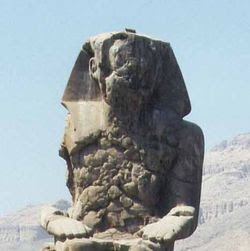
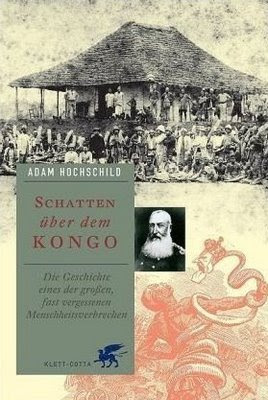























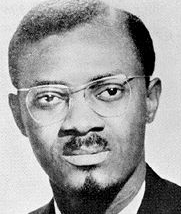











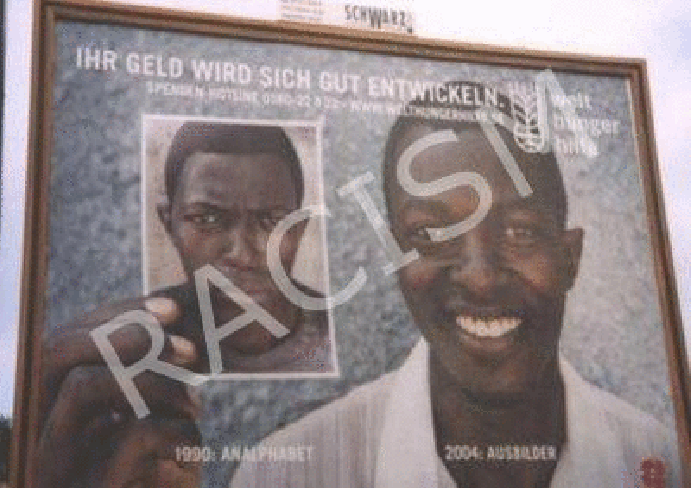
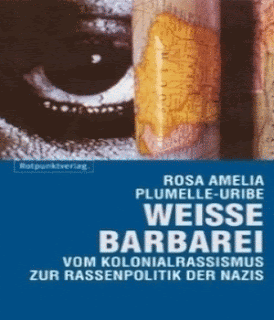

0 Kommentare:
Kommentar veröffentlichen